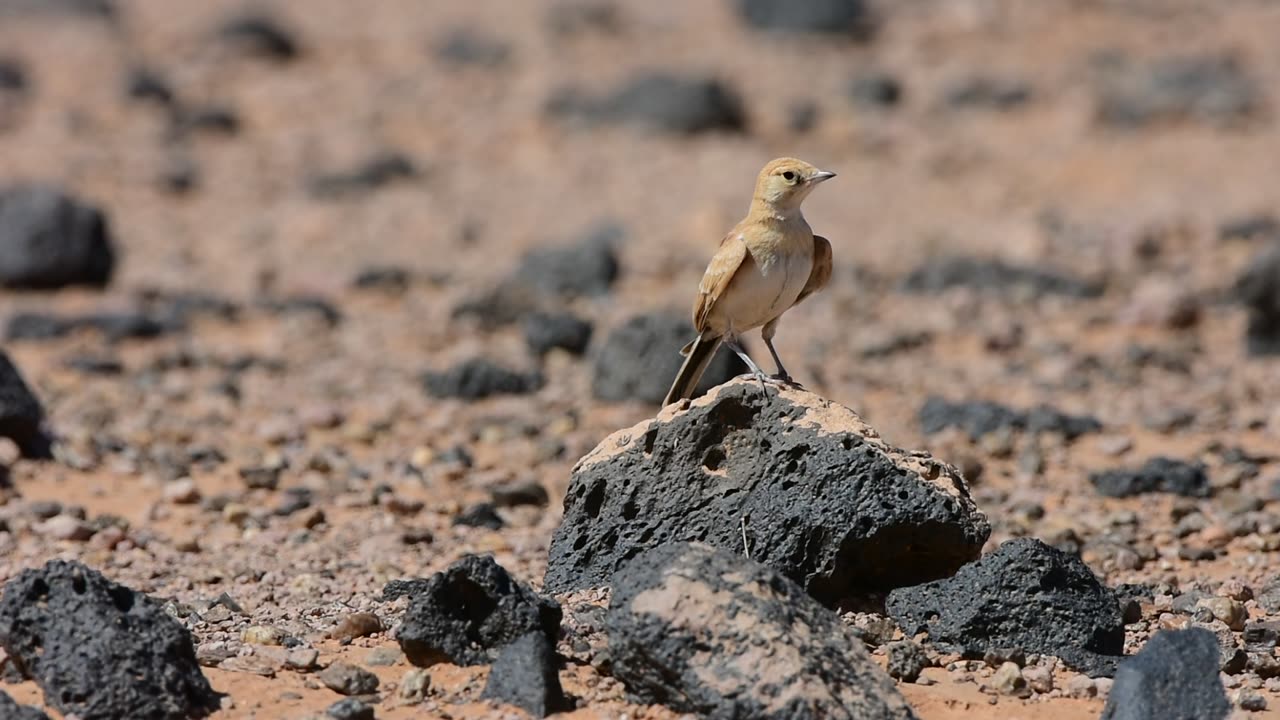Premium Only Content

Birds of Saudi Arabia: Arabian Lark (Eremalauda eremodites)
Recently my wife asked me why I’ve been so obsessed with finding Dunn’s Lark. It’s not just how challenging they can be to track down. It’s also how intriguing this understudied species actually is—the more I learn about them the more questions I have. Case in point—they’re known to be nomadic and will show up in areas that have recently received rain but then may be absent from those areas in subsequent years. For example, they were discovered at Rawdat Norah, north of Riyadh in winter 2015, after the region got substantial rainfall in November 2014. After learning about these sightings I then scoured Rawdat Norah twice in early April 2019, once December 2019, and then again in February of this year—nothing. Rawdat Norah in fact was the driest I’d seen it in February as the region had gone rainless for over six months prior. Then this past Friday, @hooligan_holiday and I returned to Rawdat Norah. Fortune was in our favor this time. Thunderstorms passed through just five days before and all along the road as we drove in Thursday evening were large puddles, indicating just how much had fallen. Sure enough at Rawdat Norah the next morning fresh growth was already in evidence and setting out into the expansive gravel-sand desert to the south of the entrance road—the same area I’d explored four times before—we soon encountered large groups of Bar-tailed Larks. Having jumped out to survey a group of near 20 I set out along a promising sandy patch with the herbaceous vegetation preferred by the Dunn’s Lark. And then there they were—a pair of them foraging less than 10 meters away. We soon found others and, considering how expansive the area is, it’s possible that there were many more. So in this case it seems they showed up due to the rains, but what I’ve been wondering is how they knew. What signs are they registering in their environment that tell them that some possibly far off area had just received rain? And how far would they wander if the whole of their range went without rain
-
 1:05:28
1:05:28
Man in America
11 hours agoTREASON? Obama, Hillary, and Soros in the New World Order Agenda EXPOSED w/ Mel K
76.1K54 -
 2:22:46
2:22:46
The Connect: With Johnny Mitchell
11 hours ago $1.97 earnedOne Man's Mission To Stop Human Trafficking: How A Billionaire Mercenary Saved Hundreds Of Children
17.7K10 -
 2:35:13
2:35:13
Tundra Tactical
7 hours ago $3.09 earned🔫 California Ammo Win, Sig Sauer P320 Controversy, Meme Review & Would You Rather! 🎉🔥
27.9K5 -
 16:24
16:24
Forrest Galante
4 hours ago6 Deadliest Man Eaters to Ever Exist
23.5K3 -
 10:14
10:14
MattMorseTV
9 hours ago $10.78 earnedThe EU is in HOT WATER.
83.8K53 -
 LIVE
LIVE
The Rabble Wrangler
1 day agoPUBG with The Best in the West!
529 watching -
 3:57:19
3:57:19
EvilT4000
7 hours ago $1.58 earnedSaturday.....🟢For energy and focus click my Dubby link!
24.8K3 -
 3:02:55
3:02:55
SlingerGames
4 hours agoSpartan Night - Halo and More | Creator for @SELFMADEGGS
16.4K -
 3:57:49
3:57:49
Mally_Mouse
10 hours agoSpicy Saturday!! - 10k CELEBRATION! - Let's Play: Labyrinthine
32K1 -
 37:09
37:09
The Mel K Show
10 hours agoMel K & Dr. Kirk Moore | A Doctor’s Oath: Doing What is Right No Matter the Cost | 7-26-25
32.4K15